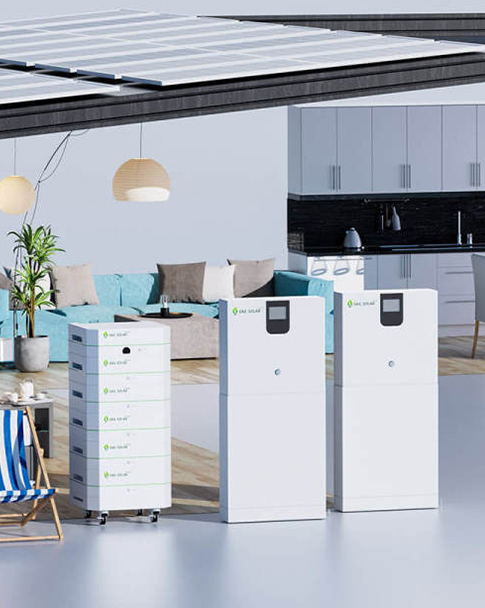Harnessing the Power: The Comprehensive Benefits of a Solar Storage Battery
Table of Contents
Introduction to Solar Storage Batteries
In today’s energy-conscious world, the importance of sustainable energy solutions has never been greater. A solar storage battery plays a crucial role in harnessing the power of the sun, allowing homeowners and businesses to store excess energy generated during the day for use at night or during cloudy weather. This technology is revolutionizing energy consumption, making it vital to understand its benefits and functionality.
How Solar Storage Batteries Work
Solar storage batteries operate by storing excess electricity generated from solar panels. When sunlight hits the solar panels, they convert it into direct current (DC) electricity. This electricity can either be used immediately to power your home or business or sent to a battery storage system for later use.
During non-daylight hours or peak usage times, the stored energy can be released as needed. Most solar storage batteries utilize lithium-ion technology, known for its efficiency and long life span, although other options such as lead-acid batteries exist.
The Major Benefits of Solar Storage Batteries
Solar storage batteries offer numerous advantages, making them an essential component of modern energy systems. Below, we delve into the key benefits.
Energy Independence
One of the most appealing aspects of solar storage batteries is **energy independence**. By storing solar energy, homeowners can reduce their reliance on the grid, especially during peak hours when electricity rates are higher. This independence not only provides peace of mind but also adds value to your property.
Significant Cost Savings
Investing in solar storage batteries can lead to **significant cost savings**. By using stored energy during peak pricing times, individuals and businesses can save considerably on their electricity bills. Many regions also offer financial incentives and rebates for installing solar energy systems, further enhancing the return on investment.
Positive Environmental Impact
Solar storage batteries contribute to a **positive environmental impact** by reducing reliance on fossil fuels. Utilizing renewable energy sources decreases carbon footprints, promoting a cleaner and more sustainable environment. Transitioning to solar energy not only benefits individuals but also plays a crucial role in mitigating climate change.
Types of Solar Storage Batteries
Understanding the various types of solar storage batteries can help in choosing the right one for your needs. The most common types include:
Lithium-Ion Batteries
Lithium-ion batteries are the most prevalent choice, known for their **high energy density**, long life span, and efficiency. They are particularly favored for residential solar systems due to their compact size and performance.
Lead-Acid Batteries
Lead-acid batteries are another option, typically available at a lower initial cost. However, they have a shorter life span and require more maintenance compared to lithium-ion batteries.
Flow Batteries
Flow batteries are less common but are gaining attention for their scalability and long life span. They are particularly useful for larger installations requiring extensive energy storage.
Factors to Consider When Choosing a Solar Storage Battery
When selecting a solar storage battery, several important factors should be considered:
Storage Capacity
The storage capacity determines how much energy your battery can hold. Choose a battery that meets your energy needs and consumption patterns.
Efficiency
Battery efficiency indicates how much energy can be stored versus how much is lost during the charging and discharging processes. Higher efficiency translates to better performance.
Lifetime and Warranty
Consider the expected life span of the battery and the warranty period offered by the manufacturer. A longer warranty typically indicates confidence in the battery's durability.
Installation Cost
Installation costs can vary. It's essential to take these costs into account when budgeting for your solar storage project.
Installation and Maintenance of Solar Storage Batteries
Proper installation and maintenance of solar storage batteries are critical for optimal performance.
Installation Process
The installation process typically involves assessing your energy needs, selecting the right battery, and connecting it to your solar panel system. It's advisable to hire a qualified professional for the installation to ensure compliance with local regulations and safety standards.
Maintenance Requirements
Most solar storage batteries require minimal maintenance, especially lithium-ion models. Regular checks on connections, monitoring the battery's health, and following manufacturer guidelines can help prolong the battery's lifespan.
The Future of Solar Storage Technology
The future of solar storage technology looks promising, with advancements in battery chemistry and technology on the horizon. Emerging technologies aim to improve efficiency, reduce costs, and expand the capabilities of solar storage systems.
Innovations such as solid-state batteries and improved recycling methods for battery components are expected to revolutionize the market. These advancements will not only enhance performance but also make solar energy more accessible to a broader audience.
FAQs
1. What is a solar storage battery?
A solar storage battery is a device that stores excess electricity generated from solar panels for later use.
2. How long do solar storage batteries last?
Most modern solar storage batteries, especially lithium-ion types, can last between 10 to 15 years, depending on usage and maintenance.
3. Can I use a solar storage battery without solar panels?
While solar storage batteries are designed to work with solar panels, they can be used in conjunction with other renewable energy sources or the grid.
4. How much do solar storage batteries cost?
The cost of solar storage batteries varies widely based on capacity and technology, typically ranging from a few thousand to over ten thousand dollars.
5. Are solar storage batteries environmentally friendly?
Yes, solar storage batteries are environmentally friendly as they reduce reliance on fossil fuels and promote the use of renewable energy sources.
Conclusion
Harnessing the power of a solar storage battery offers a multitude of benefits that can transform energy consumption for individuals and businesses alike. From achieving energy independence and significant cost savings to contributing positively to the environment, the advantages are compelling. As advancements in technology continue to emerge, solar storage batteries will play an increasingly vital role in a sustainable energy future. Investing in this technology is not just a step towards personal savings; it’s a commitment to a greener planet. Embracing solar storage batteries today can lead to a brighter tomorrow.


